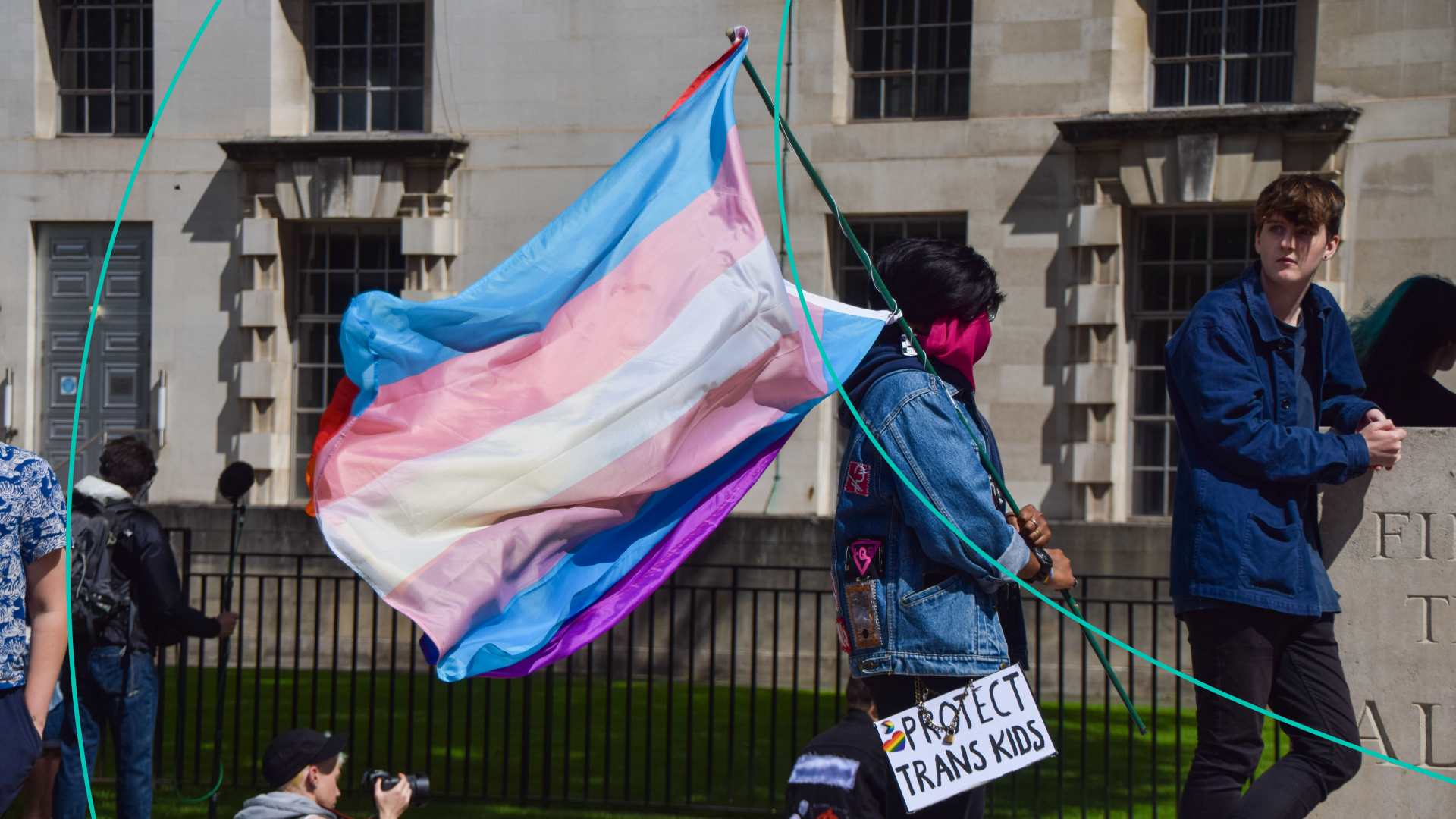Pride
The Story
Today is the first day of Pride Month. And there’s a lot to talk about.
Like…?
Gay and transgender rights. More than 300 anti-LGBTQ+ bills have reportedly already been intro'd this year, with many targeting trans youth specifically. That means 2022 could be the worst year for anti-trans legislation, ever. Some measures would prevent gender-affirming care or bar trans athletes from school sports, while others would restrict bathroom access. All of these bills would impact trans kids — including their mental health.
Have any of these bills passed?
Some. Alabama made it a felony to provide gender-affirming surgeries for minors, which could result in up to 10 years in prison. While Texas passed a law that directs the state to investigate parents for child abuse if their kids undergo gender-affirming treatments and procedures (think: taking hormones or puberty-blocking drugs). And Oklahoma passed a law that requires students to use bathrooms that match the sex listed on their birth certificates. Meanwhile, despite a challenge in federal court, Florida’s “Don’t Say Gay” law is set to go into effect next month.
What happens now?
Lawmakers across more than a dozen states (like Colorado, Connecticut, and New Mexico) say they’re planning to provide transgender kids and their families legal refuge if they violate another state’s law by receiving gender-affirming care. Meaning, the states will not cooperate with another state’s anti-trans investigation. And in the meantime, President Biden is urging the Senate to pass the Equality Act, a law that would provide federal civil rights protections to trans and LGBTQ+ people. As he put it, LGBTQ+ rights “are human rights.” So far, it’s passed the House.
theSkimm
Pride Month is a decades-long tradition to honor the joy of being part of the LGBTQ+ community. And while many are celebrating, there is more work to be done.
PS: Here’s more on where we stand with LGBTQ+ rights across the US — and what people can do to take action.
And Also...This
Where people are getting a break...
Shanghai. Today, China’s largest city — and financial hub — started loosening restrictions after a two-month COVID-19 lockdown. ICYMI: In March, the city became the epicenter of China's largest outbreak since the beginning of the pandemic. And since China has a zero-tolerance COVID-19 policy, that meant mass testing, mandatory quarantines, and 25 million people confined to their homes for eight weeks. During that time, some were separated from family members and food and medicine ran short, prompting protests. Now, after hitting a record of nearly 20,000 cases, Shanghai reported 15 new cases today. So residents can start using public transportation and going to stores as they open gradually.
...Oh and speaking of things on China’s mind: Taiwan. This week, the self-governing island accused China of sending 30 planes into its air defense zone — one of the largest raids this year.
What's got updates...
The Trump-Russia probe. Yesterday, Michael Sussmann, a lawyer for Hillary Clinton’s 2016 campaign, was acquitted of lying to the FBI. In 2016, Sussmann shared a tip to US intel agencies that he had info suggesting a possible backchannel between Russia and the Trump Organization. Those allegations never panned out, and John Durham, a Trump-appointed special counsel, accused Sussmann of concealing that he was working on behalf of Hillary Clinton’s presidential campaign. Sussmann always maintained he didn't lie, and yesterday, a jury agreed with him — delivering a blow to Durham, who was appointed by former President Trump to investigate the origins of the FBI’s probe into Russian interference in the 2016 election. The acquittal has Durham saying he’s “disappointed in the outcome.” While Sussmann says “justice ultimately prevailed.”
Where there's a new public health approach...
Canada. Yesterday, the province of British Columbia announced it was decriminalizing opioids, meth, cocaine, and ecstasy. The announcement comes years after the region first announced a public health emergency. And last year, a record number of people there — more than 2,000 — died of drug overdoses. Now, the western province of British Columbia will stop penalizing people who carry these drugs — so long as they don't produce or traffic them. The local government says the goal is to provide those experiencing addiction to have access to local officials if needed without fear of arrest or stigma. The government is also hoping this will help avoid over-policing of marginalized communities. The change is set to go into effect next year.
Meanwhile, in the US: More than 107,000 people died of overdose deaths last year — the highest on record. Experts say the COVID-19 pandemic has exacerbated the problem.
What’s down under but putting women on top…
Australia. Yesterday, the country’s new PM Anthony Albanese named a record 10 women to his incoming Cabinet. It’s a vegemitey achievement.
What's got us e-x-c-i-t-e-d...
Live Smarter
Sign up for the Daily Skimm email newsletter. Delivered to your inbox every morning and prepares you for your day in minutes.






